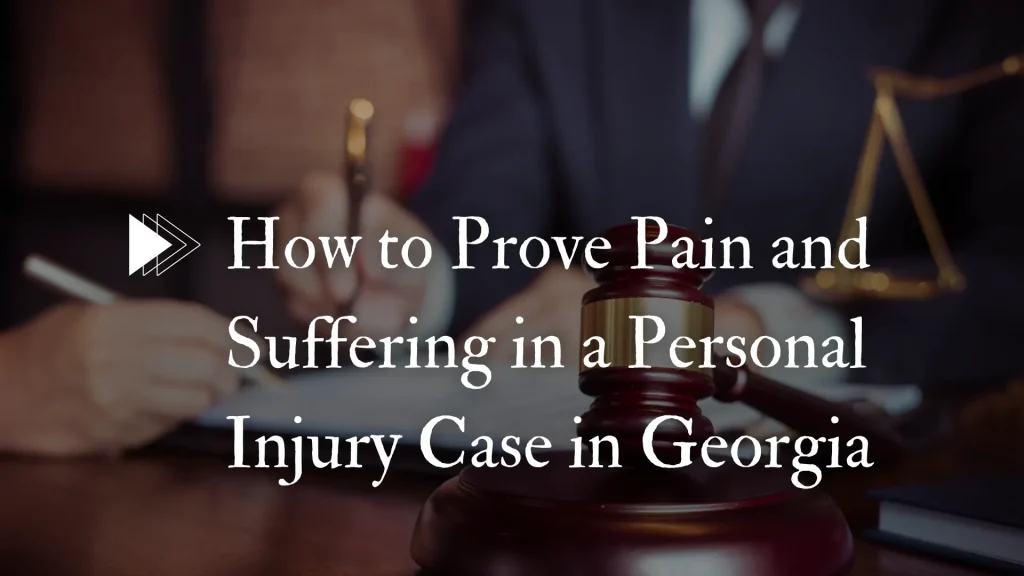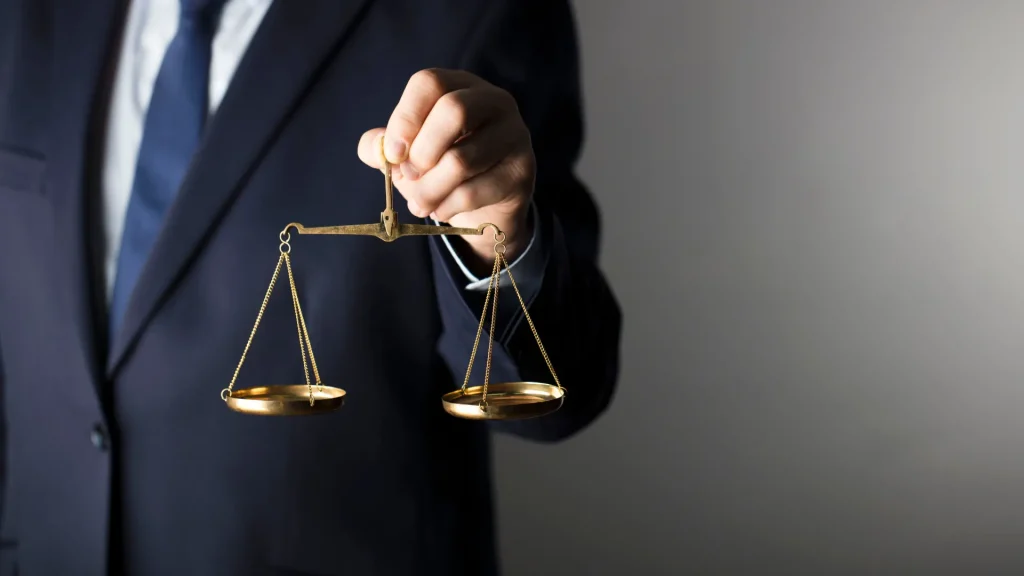
Putting a dollar value on a personal injury case can be challenging, which is why the discovery phase is so important—it’s the part of the process where evidence is gathered to better understand the full extent of your damages. Money doesn’t change the fact that you are hurt or in pain. It can’t help you enjoy the activities you once loved. When an accident changes your life in numerous unexpected ways, it makes it difficult to understand the value of your case and what compensation you deserve. While it may be easy to calculate your medical expenses and property damage by adding up bills and receipts, proving pain and suffering is a much more personal and complex part of recovering fair compensation for what you’ve truly endured.
Proving pain and suffering in a Georgia personal injury case can be challenging. The court can’t step inside your head and evaluate how your injuries impact your overall quality of life. Instead, you need evidence and the help of an experienced attorney to prove how pain and suffering affect you and show why you deserve maximum compensation for your injuries.
Why Proving Pain and Suffering Matters
It helps to start by addressing what pain and suffering mean. Pain and suffering are subjective because it is impossible to fully understand the scope of one person’s physical pain and mental distress. In a legal context, pain and suffering typically refer to the physical and psychological distress a victim experiences following an accident caused by the actions of a careless party. Pain and suffering impact a person’s overall quality of life and can lead to struggles that affect a victim’s daily life in the short and long term.
Pain and suffering fall under the umbrella of non-economic damages. Economic damages compensate a victim for measurable and tangible losses like medical expenses and lost wages, while non-economic damages compensate a person for quality-of-life issues like emotional distress, pain, and suffering.
Proving pain and suffering matters in Georgia personal injury cases because physical pain and mental suffering tend to cause long-term damage and complications that decrease the overall quality of life and a person’s ability to function. Long after economic damages pay for a person’s medical care and lost wages, a person may still suffer the lingering effects of chronic pain, mental distress, depression, anxiety, insomnia, and other issues that degrade how they interact with others and the world.
Pursuing pain and suffering compensation also humanizes the personal injury settlement lawsuit process, showing that the actions of the careless individual have lasting consequences and that victims deserve compensation that helps them recover from visible and invisible injuries.
How to Prove Pain and Suffering in a Claim
Again, pain and suffering are subjective terms. Proving something as subjective as pain and suffering can be challenging. Since the court cannot step inside a victim’s head and automatically understand how their injuries impact their daily life, it takes substantial evidence to show the court how physical injuries and mental distress have decreased a person’s quality of life and overall enjoyment. Examples of evidence needed to help support a Georgia pain and suffering claim can include:
- Medical records
- Witness statements
- Photographs and videos of the accident scene
- Pictures and videos of a victim’s injuries
- Expert witness testimony
Expert witness testimony is key to building a solid case proving that an accident victim deserves fair compensation for pain and suffering. Expert medical testimony can help establish the extent and severity of a person’s injuries and how those injuries impact the person’s daily life or cause significant struggles. They can also use their knowledge and resources to illustrate to the court how a victim’s injuries are likely to impact their life in the future, showing how similar injuries cause physical or mental limitations and long-term medical complications.
Unfortunately, the problem with extensive injuries that cause pain and suffering is that these injuries may prevent a victim from collecting and preserving the evidence necessary to prove their case. Seeking help from an experienced Georgia personal injury attorney, get the help you need, gather vital evidence, and gain access to experts and professionals who can attest to the extent of your injuries and how they alter your life.
Tips to Strengthen Your Pain and Suffering Claim
 Taking a few simple steps following an accident can help you strengthen your pain and suffering case and put you in the best position possible to argue for maximum compensation for your injuries. Tips for building a solid pain and suffering case include:
Taking a few simple steps following an accident can help you strengthen your pain and suffering case and put you in the best position possible to argue for maximum compensation for your injuries. Tips for building a solid pain and suffering case include:
- Seek Medical Attention for Your Injuries Immediately – For your safety and to build a substantial compensation claim, always seek medical attention as soon as possible. Your medical records are a vital piece of the pain and suffering puzzle.
- Don’t Forget Mental Health Services – Getting the medical care you need may also involve seeking help from therapists, counselors, or mental health services. Take care of your physical injuries, but don’t forget to get help addressing your mental wounds as well. Again, your mental health records can help substantiate your claim of emotional distress.
- Stay the Course – Follow your doctor’s treatment plan and never skip appointments or discontinue medical care without physician approval.
- Keep Detailed Records – Keep detailed records of your medical expenses, lost wages, and other accident-related costs.
- Keep a Journal – It can help your mental health and document your personal injury case. Keep an accident pain journal documenting your recovery and how your injuries impact your daily life. You can track your pain levels, discuss how your injuries limit you physically, and discuss how your mental health impacts daily life and relationships.
- Avoid Social Media – Do not post anything until your attorney resolves your case. Insurers and opposing attorneys will look for anything that can potentially be used against you, even if that is a photograph or you smiling with friends at dinner, to discredit you or call your injuries and mental distress into question.
A Georgia Personal Injury Attorney Works for You
At Chris Hudson Law Group, our personal injury attorneys in Georgia take the time to get to know you and understand how your injuries affect you and your family. We work hard to build an effective legal strategy that gives you the best chance of recovering maximum compensation for your injuries and accounting for the pain and suffering you are experiencing. Our team is here to help you understand your rights and take the first step toward securing the necessary benefits. Contact our office now or call us at (706) 863-6600 to request a free legal consultation.
Related Post
Switching Personal Injury Lawyers in Georgia
Preparing for Your Personal Injury Mediation Process in Augusta
